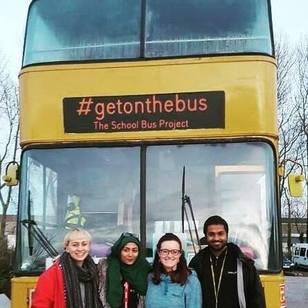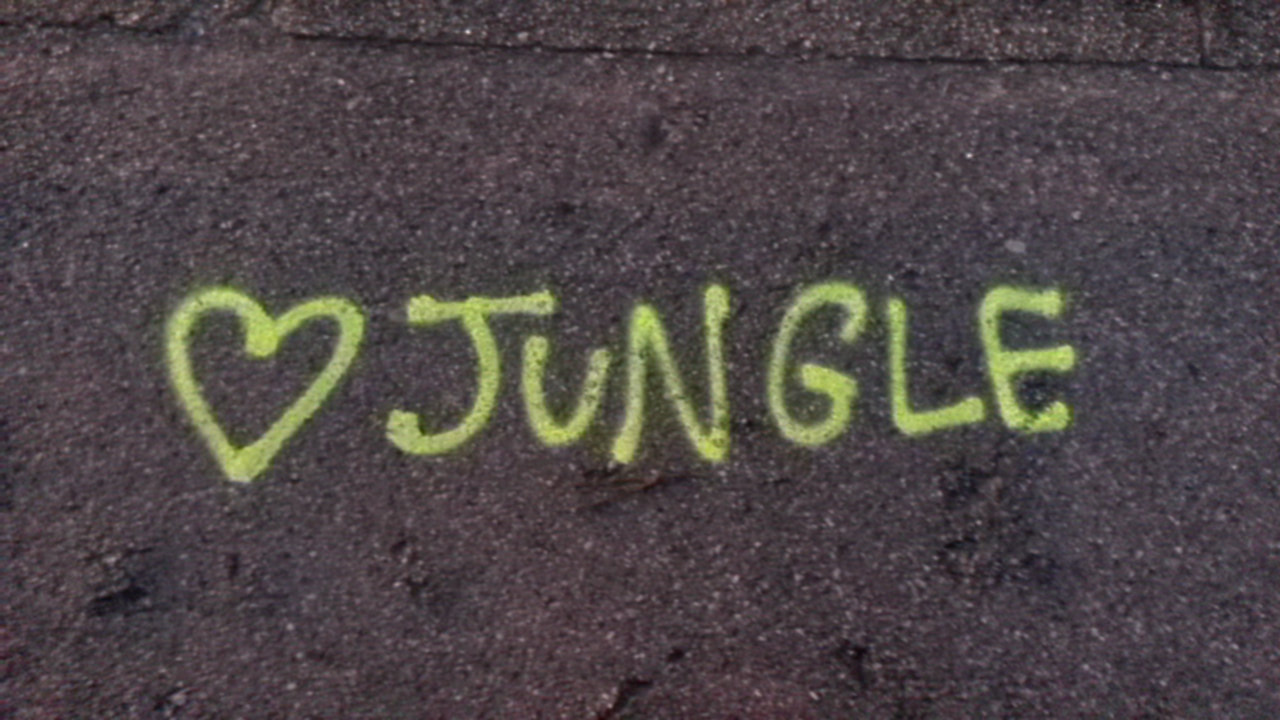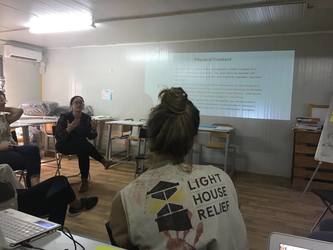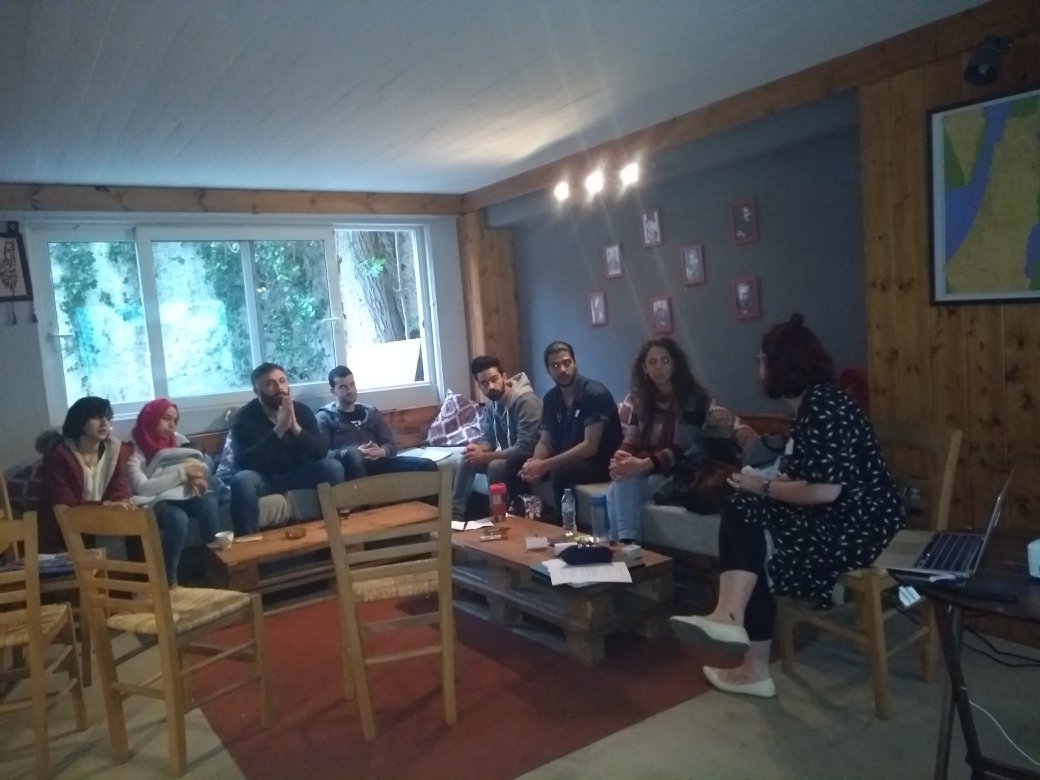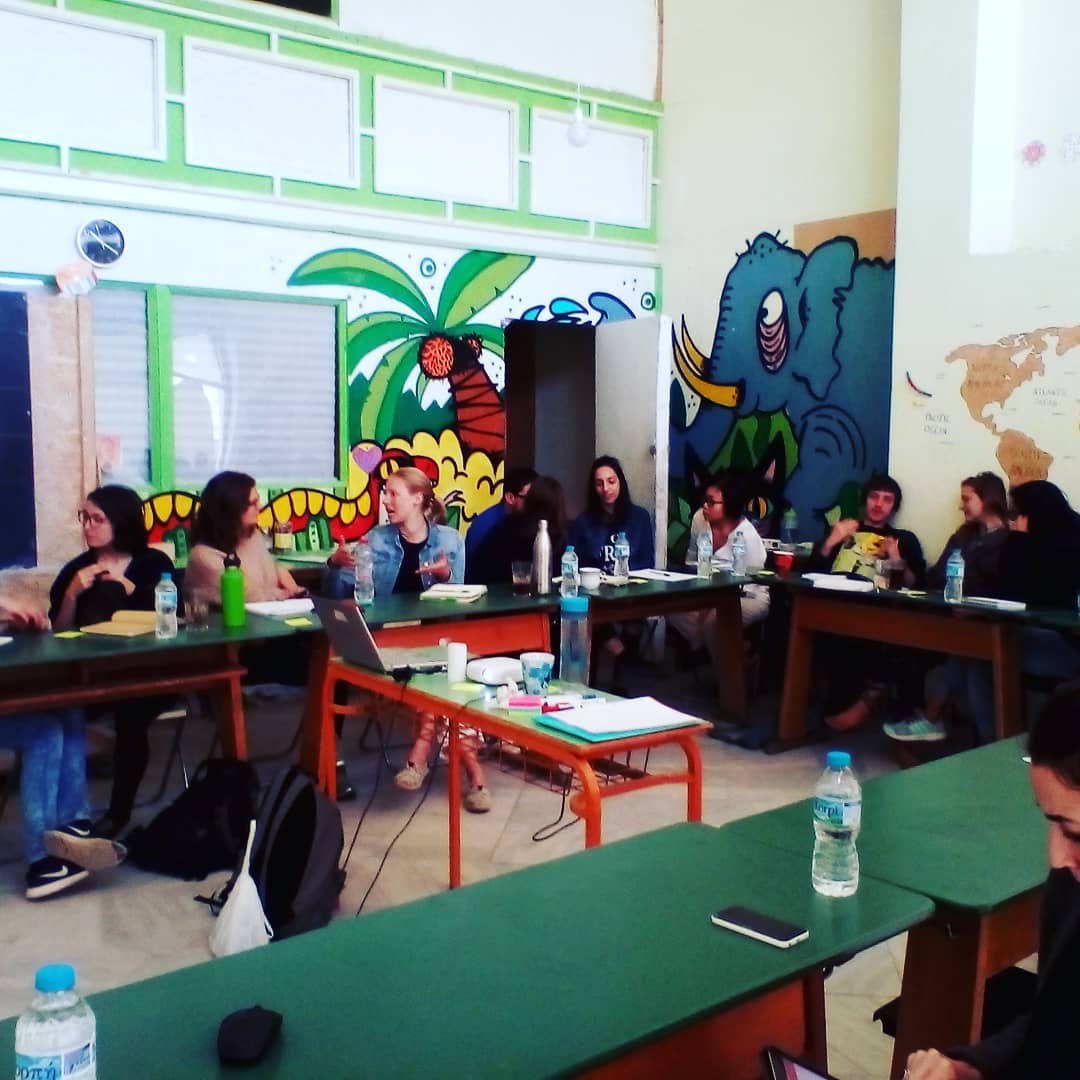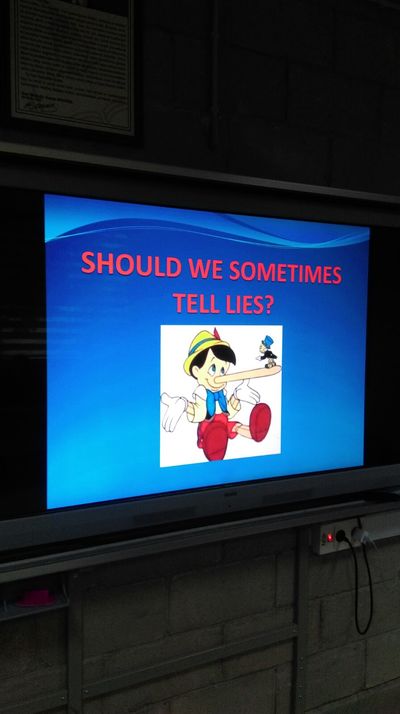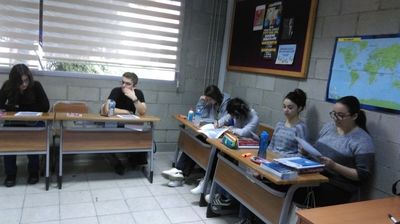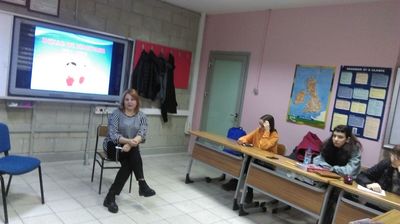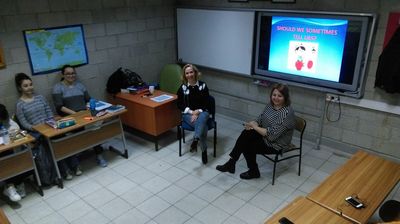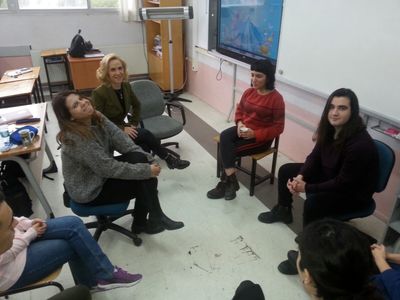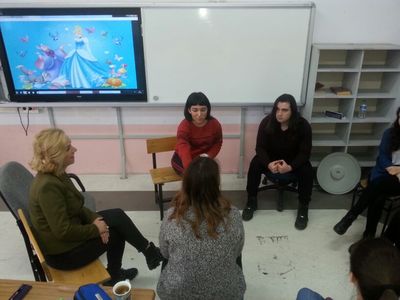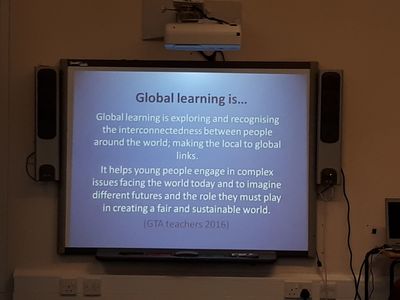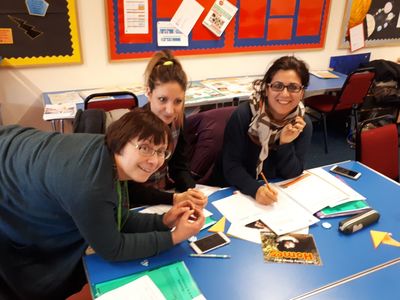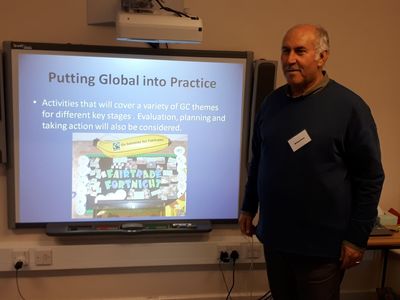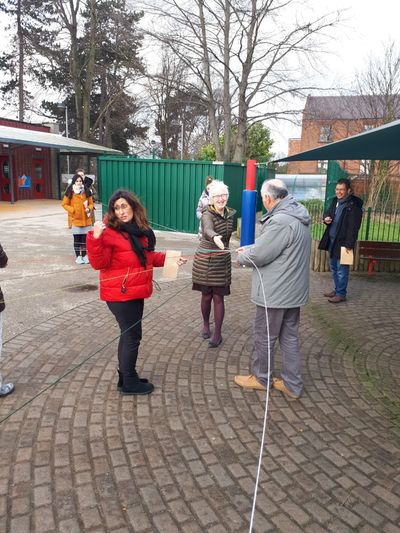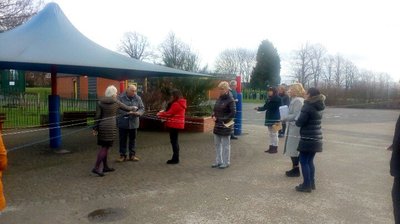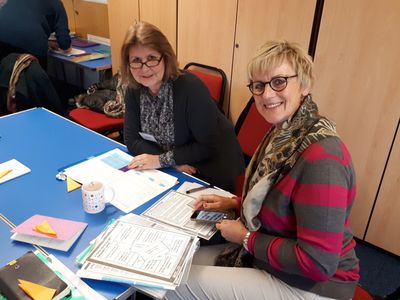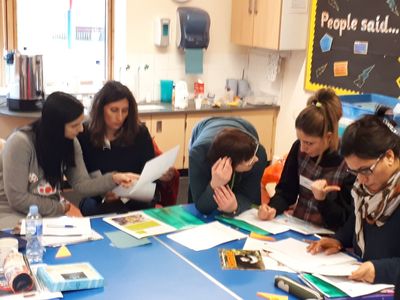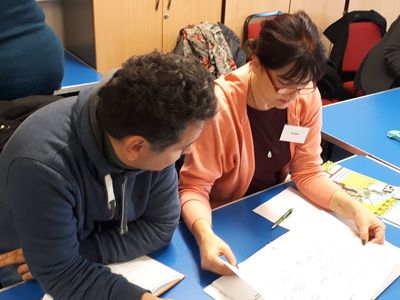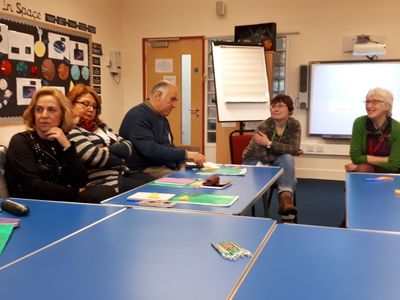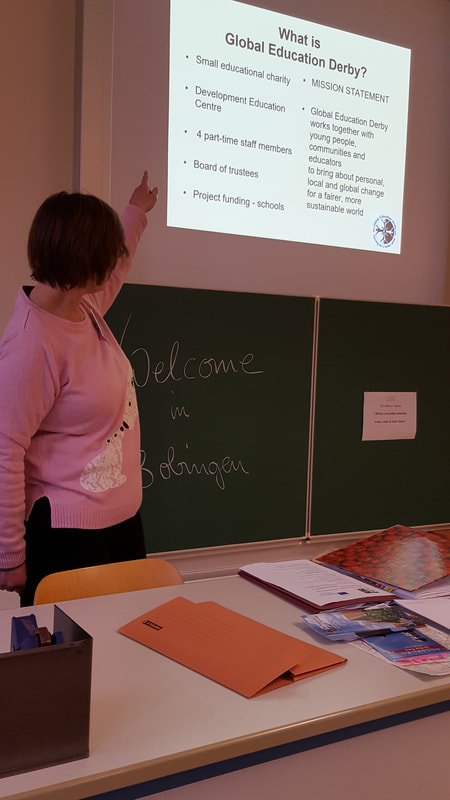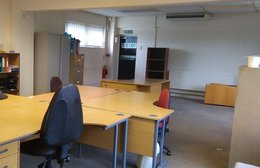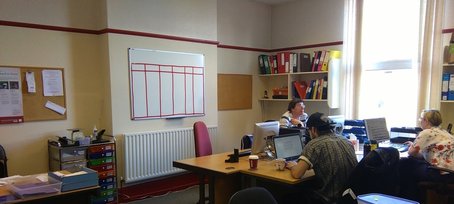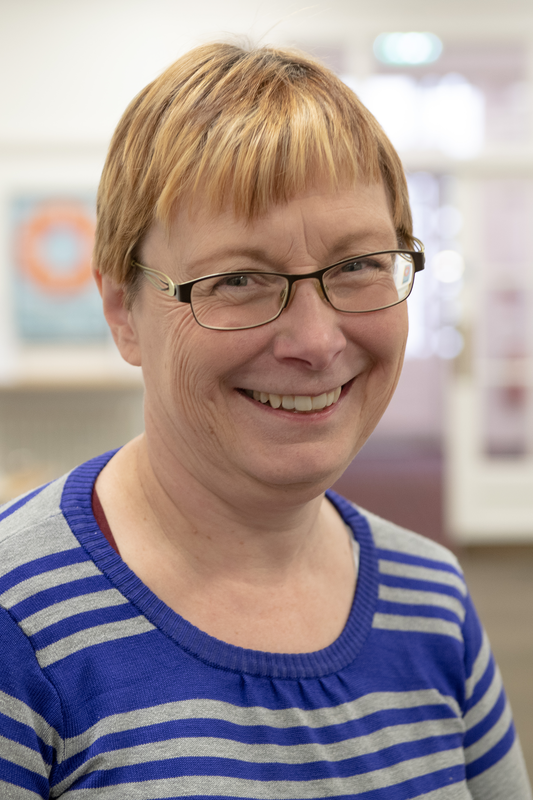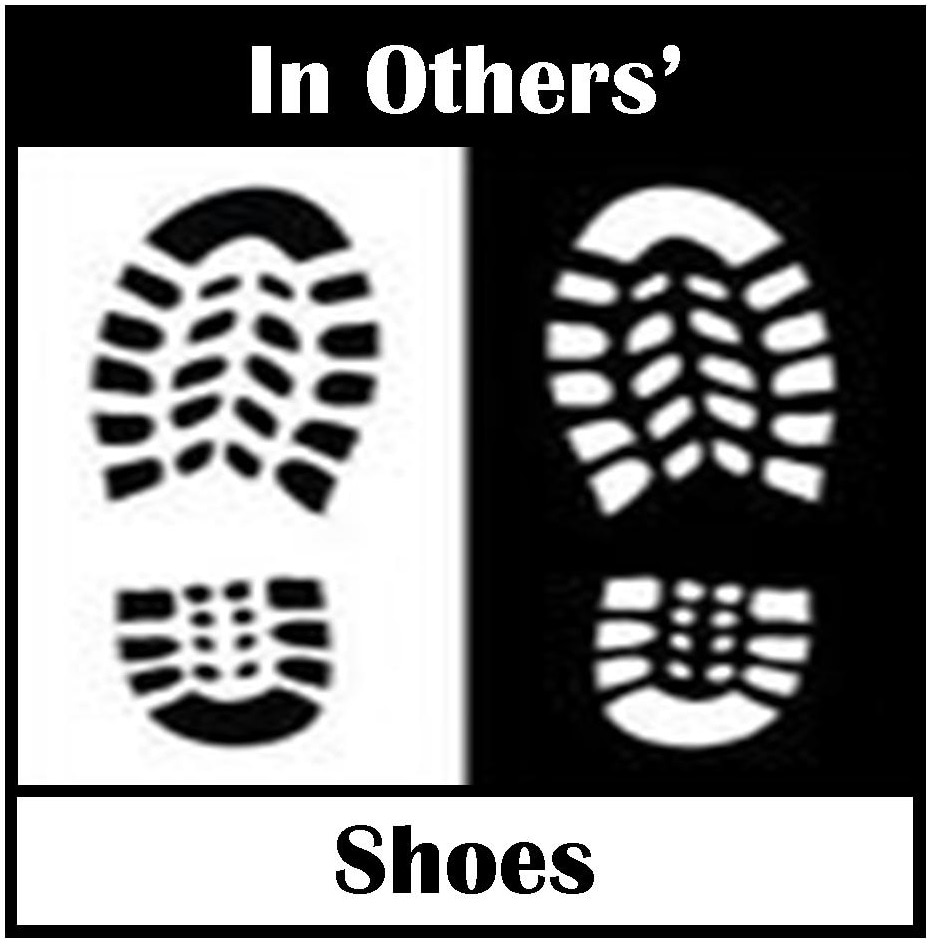|
Guest blog, written by: Liz Hibberd MA | BA | PGCE, Education Consultant & Freelance Trainer, Refugee Integration and Support Specialist / Development Assistant, Manchester City of Sanctuary We are really pleased that Liz has written this blog for our project. If you would like to contact Liz about her work with refugees and asylum seekers, her email is: [email protected]
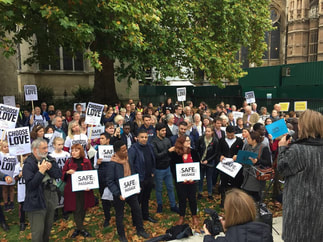 Building teacher confidence My thesis analysed how confident teachers felt engaging in this topic and whether they felt able to discuss it and teach their students about it. Whilst it wasn’t unanimous, there was a large proportion of the teachers interviewed and who completed my survey that did not feel confident despite appreciating the need to do so. This was partly due to a lack of awareness and understanding of the issues and concern about how to integrate a sensitive and potentially controversial topic like this in to lessons. This is something I’m trying to work on now, by developing a series of training sessions that I can deliver to schools to introduce both teachers and students. Primarily to develop a more nuanced understanding of the myriad of layers that are involved in this area but also to make the arrival of refugee and asylum seeking children easier.
Global Learning and Development Education are key pedagogies that enable this insight, to critically question and appropriately challenge the status quo and begin the journey towards a greater understanding of the other and the removal of the ‘single story’ narrative. Contacts
Contact the author of this blog, Liz Hibberd: [email protected] Safe Passage Community Mentor: http://safepassage.org.uk Education and Training Lead - Refugee Children's Centres https://refugeechildrenscentres.org/ Your local Development Education Centre could help you, if you want to find out more. https://globalclassrooms.org.uk/
0 Comments
After our successful training event in January 2018, our project teachers have all returned to school, eager to plan, deliver and reflect on the techniques we learned together. The training was based around participatory approaches to learning. On day one, we explored Philosophy for Children, through games, stories and visual stimuli, to generate "big questions" that cannot be answered through a Google search, or Wikipedia! Everyone has returned to school to try out this methodology for themselves. We will be reporting back on how everything went when we meet again in May. Our second training day focused on the Global Teachers Award. We worked together to examine global issues and how they can be investigated across the curriculum. How can we support young people to develop the critical thinking skills, values and attitudes needed for 21st Century life? We had a closer look at practical activities that we could take away, adapt and use in our own classrooms. Everyone is preparing to submit a written reflection on one activity, in order to achieve Global Teacher Award Level 1 certification.
Another bitterly cold February morning found me, well wrapped up, with my Erasmus+ cloth bag dangling over my shoulder, walking briskly back to the office - full of my own thoughts.
A young man, aged around nineteen maybe, crossed the road nearby and called out to me for any spare change. As usual, I braced myself to explain I had no money, as sadly, I have done many times before. The teenager began to stride along beside me, "I hate to ask for money," he said, "but what else can I do?" I looked up and saw the desperation in his eyes and sensed he was on the edge of tears. He had a different demeanour and manner to others I had come across in the past. My defences were down. "Please", he said, "I need £10 so my friend will let me stay in his house tonight. If I don't have the money he won't let me in." "He isn't much of a friend, then" I responded and a dialogue began. "He might not be much of a friend, but he is the only hope I have. My Dad has a new partner and he has kicked me out. I never asked to be homeless." There was something about the boy that tugged at my heart strings. So young, so alone, so vulnerable. Another voice began to speak in my head - he is lying to you. He just wants money for drugs. Don't be deceived. But the boy continued talking and I continued listening. "If I can only pay my rent, he will let me use his address. I have been promised a job if I have somewhere to live. I am not on drugs you know" He spoke fast, fluent English but with a slight accent suggesting he was brought up elsewhere in Europe. What had brought him to Derby? Were his family escaping war or persecution? Were they economic migrants? Were they sold a dream of UK prosperity that was impossible to achieve? There was something about him that deeply disturbed me, "What job will it be?" "It can be any job, I just want to work and not to have to ask people with a good heart for money" He must have seen something in my eyes too - maybe shock that young people like him are existing in poverty on the edge of British society in 2018. Would the teachers I know in Pakistan, Palestine or Ghana believe that poverty, both financial and emotional, is common place on the streets of the UK?. My companion was fighting back tears again. I found my hand plunging deep into my pocket, reaching into the small amount of loose change I discovered lying there. I pulled out a £2 coin and passed it to him. Despite my misgivings it seemed the right thing to do. He emptied his pocket out to show me a smattering of low value coins. "This is all I have," he said. He continued walking with me a little further, telling me further details about his life. Or should I say his existence, before we went our separate ways. I thought of our meeting little more at the time, but it was a vivid encounter. I don't know his name. I never thought to ask. But I do wonder, where is he sleeping tonight? Are his dreams of a job real or fiction? Was I just easily duped? Whatever the truth, it haunts me that young people are forced to survive like this, with little opportunity to escape from the 21st Century poverty trap. It is a sobering thought indeed. (Written by guest blogger, Lisa Sabey) On Sunday, 21st January, many parts of the UK were "treated" to a delivery of snow! Panic set in with Yvonne and Lisa, our Administrator, who had spent the past few months planning a week of training and activities for our 13 European visitors. Due to arrive on the Monday, we were delighted to see that the temperatures rose enough overnight to melt the snow which, although it was lovely to look at, could have meant cancelled flights and treacherous travel conditions (not to mention the cancellation of hotel rooms with "no refunds"!) Our visitors arrived, without too many travel problems and we started off our tightly-planned week with a shared meal. A few of us had met before (at our project meeting in Bobingen, Germany) but this time two teachers from each country came together. During the week, our visitors participated in training for the Global Teacher Award and Philosophy for Children, they took part in a Faith Trail (dodging the rainfall) and visited schools in Derby for discussions and tours, as well as the opportunity to plan project activities. We all had a fantastic week, and were sad to say "farewell" to our new friends. We are now planning a return visit to the UK so that the European teachers can complete the P4C and GTA qualifications. Hopefully the sun will shine for us all in May! 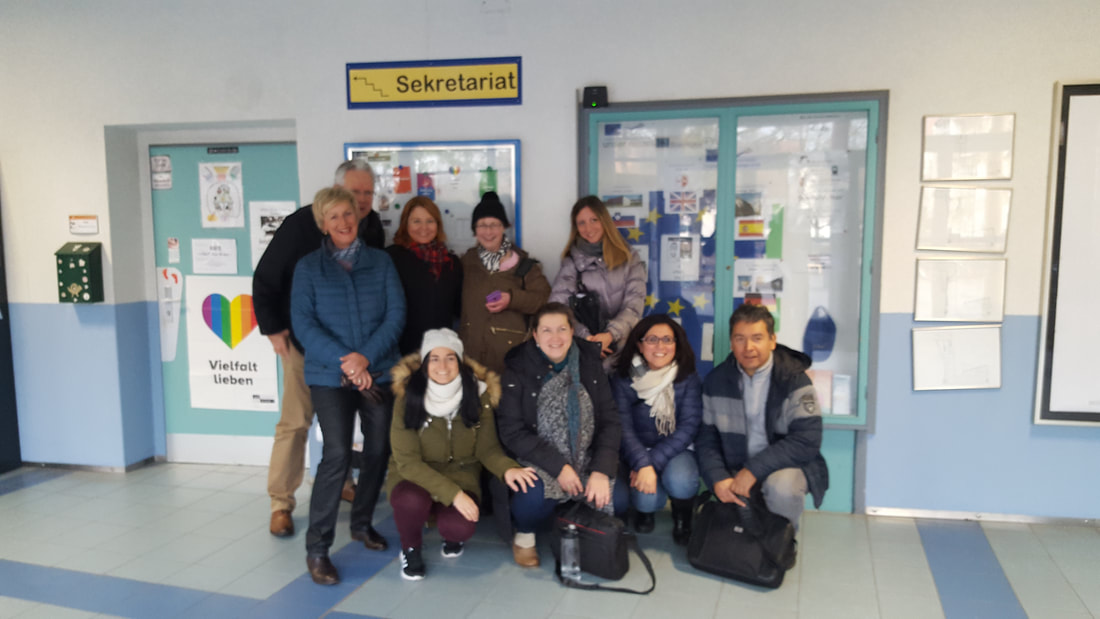 How do people find the time to write blogs? Rather like making a New Year's resolution best intentions fall by the wayside under the pressure of real life events and responsibilities. As it is, little of 2017 now remains - so here we have an "Old Years reflection" after a successful year where the In Others' Shoes project team has been founded. From initial tentative contacts we have moved on through the preparation, bright ideas and possibilities stage to getting things underway for real. Our first transnational project meeting was a great success in Bobingen, Germany. This was largely due to the wonderful welcome and hospitality we received and the high level of commitment, honesty and motivation shown by all of our partner school coordinators. No project launch is ever simple but thorough preparation gives the best chance of success. There are no short cuts but building positive relationships is essential, and a great start was made. The early days of any partnership tend to be full of energy and life, rather like a young river springing up high on a mountain side, and we found this analogy to be true. Lots of humour, laughter, questions and chats punctuated our time together. Day 1 consisted of project partner introductions with short videos, presentations and sharing to find out about each other and what we bring to the project. There was much to discuss and think about before we moved on to looking at the key elements of the project plan and how it can be moulded to fit the capabilities and priorities of each partner. Day 2 we dug a little deeper, exploring what global citizenship education can include. Time was spent thinking about how we can share the project aims within our school community, starting to plan student activities and partnerships, considering practicalities around training events, travel etc There really was a lot of information to cover in two or three short days. The good news is we will be meeting again very soon for our first learning event in Derby where we launch the professional development activities for teachers, which lies at the heart of the project. Meeting people with passion, enthusiasm and commitment reminded me of an old teachers' saying "children are a flame to be set alight not a vessel to be filled with knowledge" - hopefully our project can help inspire and educate young people. That is what it is all about. However, meeting teachers ready to light the flame, who share a hunger to teach and learn together, that is a real source of inspiration in itself. Thank you one and all and see you soon! 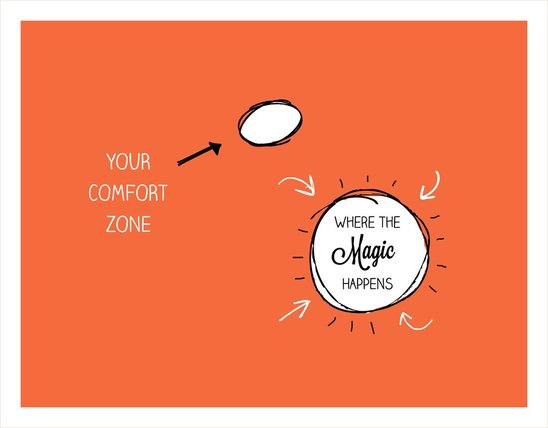 The big adventure is about to unfold, as we learned in August that "In Others' Shoes" has been approved for Erasmus Plus funding. Great news, but where do we begin and how do we get started? There is inevitably a huge amount of work involved in bringing any project to life. Initially there is a surge of energy, excitement and enthusiasm but careful foundations must always be laid. We have seven project partners with different expectations, hopes and fears for what lies ahead. Each person, each organisation, must be prepared to step out of their comfort zone to learn something new together. But as they say, it is outside your comfort zone that the magic happens and real learning takes place. What we will learn and discover is yet to be revealed. An exciting prospect. Now is the time for bravery, for forging new friendships and holding assumptions lightly. Now is the time to open our eyes to new possibilities and identify the skills, values and strengths we possess as a new team of collaborators. How can we communicate effectively? How well can we listen and understand each other? How can we work cooperatively, efficiently and share the workload? How can we make the project work for each of us in our individual settings and lives? So many things to consider, explore and ponder. One thing is for sure, there will be unexpected hurdles. Misunderstandings and challenges will arise. Progress often takes longer than expected in our instantaneous world of today. But, like a river slowly plots a new course around difficult terrain, persistence and commitment will find a solution to the issues that arise. More is learned when things go wrong than when everything appears to going smoothly to plan. Impact is often greatest where we least expect to find it. From this viewpoint there is nothing to lose and much more to gain than we imagine. There is nothing to be afraid of. Let the magic begin! 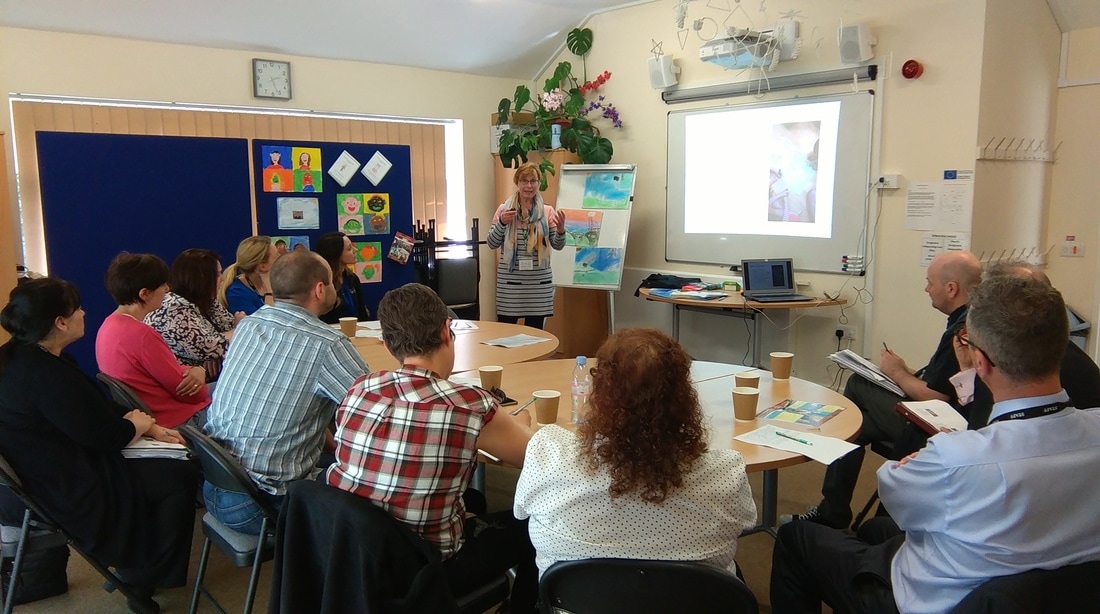 Another month has flown by and life remains very hectic . For the first time in a few years we have some funding to work with primary schools in our locality, so it is time to make new contacts, be creative and develop our problem solving and communication skills. Sadly, as a small charity with limited capacity in terms of staff and finance, our connections with the schools closest to us have suffered but now is the time to rebuild and re-energise. Our aim is to link pairs of schools so classes can explore the themes of Who am I? Who are we? Where do we live? and How do we all live together? as part of a national programme. Work will be carried out in school but also through shared activities and experiences - allowing children to discover for themselves how much we all share in common through meaningful social interaction. More information about the whole project and classroom resources can be found at thelinkingnetwork.org.uk/ The first task has been to publicise the Derby School Linking Programme and start to talk to headteachers about the benefits, challenges and commitment involved in taking part. It is much easier to work with those who "want to do" and we have been fortunate to find enthusiastic teachers and much valued support from another small local charity www.derbyopencentre.org/ Briefing sessions for headteachers have proved worthwhile and enjoyable. We are so grateful to the schools who have hosted us free of charge and the teachers who have taken the time to attend. So far, all is going well, and we are confident that we will meet our target of engaging 16 primary schools, with students aged 7 - 11 years, and that their active participation will prove valuable and enriching. Perhaps the new contacts and partnerships we are forming will be a great help with In Others' Shoes - when we eventually get underway. They are certainly inspiring us right now. ALL CHANGE! Out with the old ... and into our new office! Plan ahead as much as you like, change is inevitable and often overtakes the best laid plans without warning. Early April brought the unexpected realisation that we urgently needed to find a new home for our charity. Perhaps we should have heeded the signs when the neighbouring office was slowly emptied (along with the contents of the fridge) but, absorbed with our own concerns, we missed the warnings.
Finding suitable premises in central Derby within our price range and meeting the needs of our small team and our upcoming commitments became the top priority. Time was spent scanning advertisements, calculating costs, visiting properties and weighing up advantages and disadvantages. Time we could ill afford. What was encouraging was the support provided by our community and other local organisations, suggesting solutions to our problems, having honest and open discussions and helping make our move as quick and smooth as possible. Any form of relocation is very stressful, even with support. Change is always uncomfortable. Leaving your comfort zone and stepping into the unknown is scary. As a small charity we need to share premises with others. We have to adapt to new policies and procedures, learn to live with and respect our new work place neighbours, get to know the ethos and culture of a new place and do our best to fit in. It made me think about refugees. Leaving home through necessity due to personal danger, war, political events or natural calamity beyond their control. Taking risks, making painful choices, leaving behind familiarity, becoming vulnerable, open to abuse, rejection and loss. Compared to their daily challenges moving to a new office bears no comparison - but it allows us to understand their experiences slightly better, which can only be a good thing. March has been a month of intense project activity with information to collate, lots of thinking, explaining, communicating and thinking again all the way through to the submission deadline.
Putting together a coherent project proposal takes patience, time, talent and strategic planning building on shared strengths and connecting ideas together. Now the final project plan has been submitted what lessons have been learnt? Be prepared to start afresh The idea for the project was first born over a year ago but initial discussions and contacts proved helpful but problematic. Did everyone want the same things from the project or did prospective partners' conflicting priorities weaken our chances of success? We felt this was a stumbling block and were not sure how to find new partners. In fact the School Education Gateway proved a great tool to find new partner schools. Research always pays off. Take advice and feedback on board Traditionally Global Education Derby has limited experience of Erasmus Plus. However we analysed feedback from the assessors of our previous funding bids and looked at how we could create a robust, value for money project with a legacy that would last beyond the life of the project itself. Much reading of the guidelines was inevitable and challenging. We persevered. Challenge your assumptions Finding European partners was the big challenge in my head. I was confident that bringing a UK school on board would be relatively easy and I had one particular school in mind for this role. However, a new headteacher, with different priorities scuppered this plan and I left it too late to recruit in the timescale. Lesson here - take nothing for granted! Use your contacts and connections Discussing the project with a wider network of friends and colleagues brought in more good ideas and supportive partners who can contribute should everything go well and funding is approved. Tapping into the expertise of colleagues, trustees, community members, project participants is vital, invaluable and exciting! So glad all the paperwork is now submitted and other things can become top priorities while we wait for news. We expect to hear if we have been successful on Friday 11 August 2017. Now March is here and the deadline for submitting our Erasmus Strategic Partnership project proposal is drawing closer.
We remain convinced that our collaboration will be of great benefit to partner schools in sharing teaching strategies across European education systems that support students from a migrant background to settle and thrive in our schools, while also finding ways to promote tolerance, respect and understanding in our host communities. The decision has been made to extend the project over two years to allow more time for our shared learning and experience to become embedded in everyday school practice and to work together on a resource as a project legacy, supporting teachers facing similar challenges in the future. Putting a realistic and manageable structure in place to deliver the project well and make it sustainable beyond the life of potential funding takes a lot of thought. It's time for a fresh look at the timeline and joint activities over a two year time frame. Projects always develop a life of their own but having a clear plan in mind before hand is essential to keep on track. Focusing on the Global Teacher Award to build staff skills remains a key aspect of year 1 and we are considering encouraging participating schools to create a portfolio to gain Global School Award accreditation in Year 2. Currently only available to UK schools, this award looks at embedding global learning across the school and is a natural follow on from Global Teacher Award. Perhaps our schools can be the first schools in Europe to gain this recognition? It definitely looks a great option to explore. I also have interest from an outstanding UK school in becoming a partner, which is really exciting. Finding time to meet up and discuss is proving tricky but let's hope we succeed before time runs out! Feedback and comments from our partner schools is vital, so that all our voices are heard on the application form. Do feel free to add a comment, using the link at the top of this post. |
- Home
-
IOS TEACHING RESOURCES
- What is a journey?
- Finding Connections
- A Sweet World
- Playing with Empathy
- Multicultural Roman Empire
- New People New Places
- Migration Journeys - Why the Journey?
- Migration Journeys - Who will you take on the Journey?
- Migration Journeys - How was the Journey?
- War ... what if it happened here?
- More Equal Than Different
- The Path of Hope
- Shoes Clues
- Mystery Dinner Guests
- Mobile Phones, Me and Migration
- Problems of the World
- Emma's Story
- Global Skills Passport and Tracking Charts
- Blog
- Thinking Otherwise project

The European Commission support for the production of this website does not constitute an endorsement of the contents which reflects the views only of the authors, and the Commission cannot be held responsible for any use which may be made of the information contained therein.
|
|

